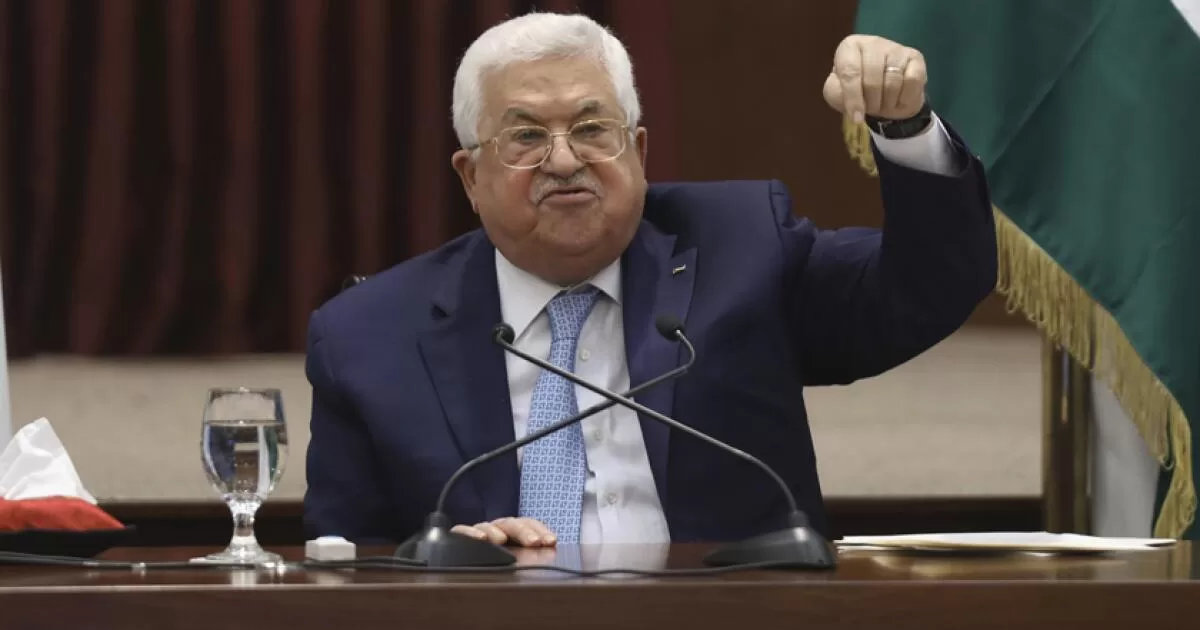The U.S. was expected to veto a Palestinian membership application Thursday, ending the latest debate on the issue at the U.N. Security Council and again squashing Palestinian statehood aspirations, at least for now.
Despite U.S. opposition, there is overwhelming support on the 15-nation council for the Palestinian bid. U.N. Secretary General Antonio Guterres said the devastating war between Israel and the militant group Hamas in Gaza has only made the statehood goal more urgent.
“Recent escalations make it even more important to support good-faith efforts to find lasting peace between Israel and a fully independent, viable and sovereign Palestinian state,” Guterres told the Security Council.
But the U.S. ambassador to the U.N., Linda Thomas-Greenfield, said ahead of the expected vote that her country’s opposition has not changed.
“Our position is that the issue of full Palestinian membership is a decision that should be negotiated between Israel and the Palestinians,” Thomas-Greenfield’s deputy, Robert Wood, said.
Here’s a deeper look at the background.
Why is the U.S. opposed?
The U.S. says allowing Palestine to become a full member of the U.N. would be tantamount to recognizing it as an independent state.
The U.S. maintains that such an elevation of Palestinian status has to come as part of a treaty with Israel that enshrines the two-state solution: establishment of a sovereign Palestinian state alongside Israel, complete with a raft of complicated security and territorial agreements.
The reality on the ground is nowhere near that.
Even before the Oct. 7 Hamas attack in southern Israel that killed about 1,200 Israelis, the right-wing government of Israel was expanding Jewish settlements in the West Bank that Palestinians claim as theirs. Continued Israeli military occupation of the West Bank and the scores of heavily-guarded settlements, considered illegal under international law, have rendered a contiguous Palestinian state in the region impossible, critics say.
The war in Gaza has further complicated the equation because of the vast devastation of the coastal strip and the reluctance many in the international community would have to seeing Gaza members in a Palestinian national government.
What do the Palestinians say?
For Palestinians, full U.N. membership is one more step in recognition of their long-standing vision of independent statehood, an ever-more-elusive goal since the 1948 establishment of Israel that led to the displacement of millions of Palestinians.
But the current nature of Palestinian leadership also leaves many questions unanswered. The West Bank, governed by the internationally recognized secular nationalist Palestinian Authority, is divided from the Gaza Strip, ruled by Hamas, an Islamic militancy considered by the U.S. and some European countries to be a terrorist organization.
President Biden and others have urged major reforms of the Palestinian Authority, which is itself deeply unpopular among Palestinians who see it as corrupt and ineffective.
Palestinians do not have “a credible leadership … capable of leading it out of its current existential crisis,” Khalil Jahshan, executive director of the Arab Center in Washington, said in a panel discussion Thursday.
Even if formation of a Palestinian state is practically impossible right now, granting U.N. membership would be a useful re-upping of the issue, said Mustafa Barghouti, a prominent Palestinian politician and activist.
“A state under occupation would put Israel in a very awkward situation,” he said, speaking via live video feed from the West Bank.
What does Israel say?
Israel says granting a State of Palestine full membership rewards “terrorists.”
“Who is the council voting to ‘recognize’ and give full membership status to? Hamas in Gaza?,” Gilad Erdan, Israel’s ambassador to the U.N., said. Such a move, he added in remarks to the Security Council, would harm any chance for future dialogue.”
Erdan also said the Palestinians do not meet four basic criteria for U.N. membership: a permanent population, defined territory, a government and the capacity to sustain relations with other countries.
Israeli Prime Minister Benjamin Netanyahu and members of his government adamantly oppose the creation of a Palestinian state.
What is the U.S. game plan?
For days, U.S. officials said they had hoped to avoid having to veto the petition and worked to delay a vote as long as possible. But that gambit appeared to be failing. Washington is often left standing almost alone in shooting down any proposals seen as critical of Israel and favoring the Palestinians.
A rare exception came last month when the U.S. abstained to allow passage of a U.N. resolution demanding a cease-fire in Gaza that Israel opposed.
Weren’t Palestinians already given U.N. membership?
Not full membership.
In 2012, Palestine was granted permanent observer status at the U.N., which allows it to participate in proceedings but not vote.
Its flag flies with the flags of other nations outside the main U.N. building but at a slight distance from the others.
